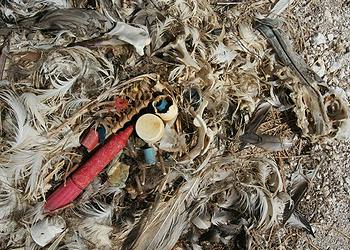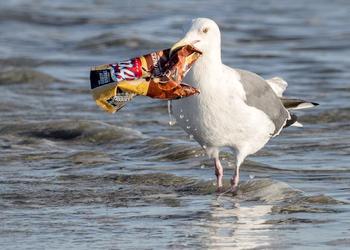 |
| Reviews and Templates for Expression We |
UN Campaigns to ‘Turn the Tide’ on Ocean Plastics

UN Environment chief Erik Solheim of Norway (Photo courtesy World Bank)
“It is past time that we tackle the plastic problem that blights our oceans, said Erik Solheim of Norway, the former Norwegian environment and development minister who now heads UN Environment. “Plastic pollution is surfing onto Indonesian beaches, settling onto the ocean floor at the North Pole, and rising through the food chain onto our dinner tables. We’ve stood by too long as the problem has gotten worse. It must stop.”
Introduced at the Economist World Ocean Summit in Bali, the UN’s new #CleanSeas campaign is urging governments to adopt plastic reduction policies.
Ten countries have already joined the campaign with far-reaching pledges to turn the plastic tide.
Indonesia has committed to slash its marine litter by a massive 70 percent by 2025.
Uruguay will tax single-use plastic bags later this year, and Costa Rica will take measures to reduce single-use plastic through better waste management and education.
The campaign is targeting industry with the message that it’s important to minimize plastic packaging and redesign products, and is calling on consumers to change their throwaway habits before irreversible damage is done to the oceans.
Each year, more than eight million tonnes of plastic ends up in the oceans, wreaking havoc on marine wildlife, fisheries and tourism, and costing at least $8 billion in damage to marine ecosystems. Up to 80 percent of all litter in the oceans is made of plastic – items such as plastic bottles, bags and cups.

This Laysan albatross died from dehydration or starvation after swallowing plastics at sea. Laysan is one of the Northwestern Hawaiian Islands in the Pacific Ocean. On nearby Midway Atoll, some 200,000 albatross chicks die each year from consuming plastics that block or perforate the stomach, esophagus or gizzard. (Photo by Duncan)
Because plastics do not break down for many years, they can be ingested and accumulated in the tissues of many marine organisms.
The UN campaign is citing a report from the Ellen MacArthur Foundation last year calculating that at the rate humans are dumping plastics into the oceans, by 2050 the oceans will contain more plastic than fish and an estimated 99 percent of seabirds will have ingested plastic.
Media personality Nadya Hutagalung supports #CleanSeas by calling on the cosmetics industry to stop adding microplastics to their products.
The Indonesian-Australian model, actress and V-Jay says as many as 51 trillion microplastic particles – 500 times more than stars in the galaxy – litter our seas, seriously threatening marine wildlife.
Hutagalung said, “On bathroom shelves around the world sit products that are destroying life in our oceans. Tiny pieces of plastic in our face scrubs and toothpastes, used to make products feel smooth, are washed away in drains to then fill the stomachs of marine animals who confuse it for food. No beauty product is worth destroying the world’s beautiful oceans, not to mention our own human well-being.”
“There are alternatives!” she exclaimed. “So let’s choose what we buy carefully and together, with the combined power of our voice and our wallets, we can urge beauty companies to end their use of microbeads.”
Singer-songwriter and UN Environment Goodwill Ambassador Jack Johnson of Hawaii pledged to engage with fans and encourage venues where he will appear during his 2017 Summer Tour to reduce single-use plastics.
Johnson is promoting a new documentary “The Smog of the Sea,” which explores the issue of microplastics in the ocean.
“I support the #CleanSeas campaign because I believe there are better alternatives to single-use disposable plastics, and that we as consumers can encourage innovation and ask businesses to take responsibility for the environmental impact of the products they produce,” said Johnson.

Entertainer Jack Johnson of Hawaii takes ocean conservation personally. (Photo by Kanaka Rastamon)
“We can all start today by making personal commitments to reduce plastic waste by carrying reusable shoppings bags and water bottles, saying no to straws and choosing products without microbeads and plastic packaging,” said the singer. “We can also support the efforts of the emerging youth leaders around the world working for healthy and plastic free oceans.”
Globally recognized brands are also joining the movement. Dell Computers will be using recovered plastic that has been fished out of the sea near Haiti in its product packaging instead of buying newly manufactured plastic to wrap its computers.
“Dell is committed to putting technology and expertise to work for a plastic-free ocean,” said Dell’s Vice President for Global Operations Piyush Bhargava. “Our new supply chain brings us one step closer to UN Environment’s vision of Clean Seas by proving that recycled ocean plastic can be commercially re-used.”
All these actions are critical to stemming the tide of marine litter. Today, humans produce 20 times more plastic than in the 1960s. Around one third of all plastic is used for packaging, according the UN Environment.
By 2050 plastic production will have to grow three to four times to satisfy the demands of an increasing population. A large proportion will end up in oceans where it could remain for centuries.
Actor Adrian Grenier, known for his role in hit TV show and film “Entourage,” and founder of the Lonely Whale Foundation has joined the #CleanSeas campaign. He is asking people to re-think their daily choices.

Seagull with a plastic food bag on a California beach, Dec. 22, 2016 (Photo by Ingrid Taylar)
“Whether we choose to use plastic bags at the grocery store or sip through a plastic straw, our seemingly small daily decisions to use plastics are having a dramatic effect on our oceans,” said Grenier. “We have the power to effect change.”
“Today I take this public pledge to do my part to refuse single use plastics, starting with the plastic straw, and also reaffirm my commitment to work with leaders such as Dell to reduce plastic packaging,” Grenier said. “If we start with one small change and hold each another accountable, I believe that together we can inspire global action for the health of our oceans.”
Throughout the year, the #CleanSeas campaign will announce ambitious measures by countries and businesses to eliminate microplastics from personal care products, ban or tax single-use bags, and reduce other disposable plastic items.
Major announcements are expected during The Ocean Conference at the UN Headquarters in New York this spring and at the December UN Environment Assembly in Nairobi, Kenya.
President of the UN General Assembly Peter Thomson of Fiji said, “The ocean is the lifeblood of our planet, yet we are poisoning it with millions of tonnes of plastic every year. The time has come to turn the tide on marine litter.”
“As the world’s nations prepare for The Ocean Conference to be held in New York, June 5–9, I urge all of them to join the Clean Seas campaign and make an ambitious pledge to reduce single-use plastic,” said Tomson. “Be it a tax on plastic bags or a ban on microbeads in cosmetics, each country can do their bit to maintain the integrity of life in the ocean.”
|
|
|
|
Copyright remains with the original authors |